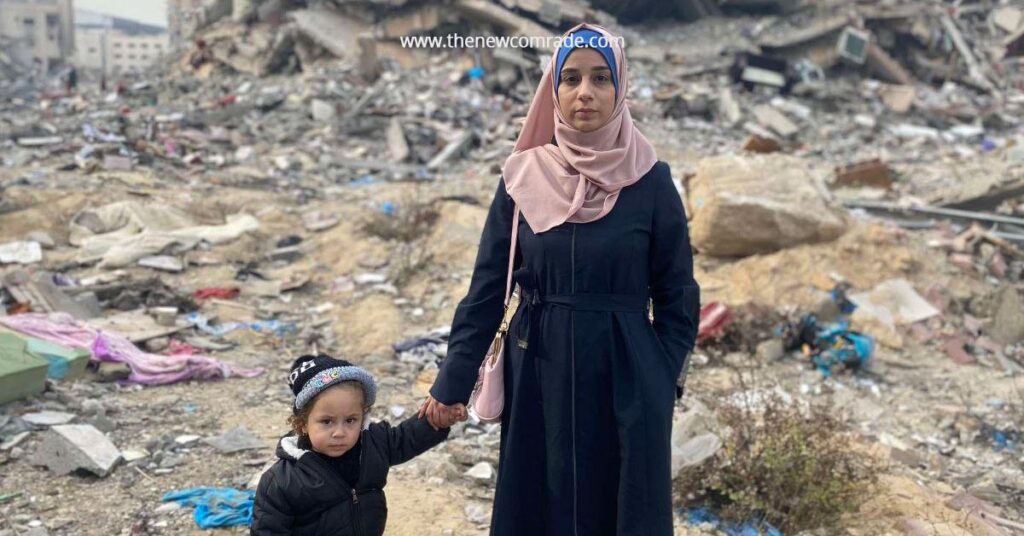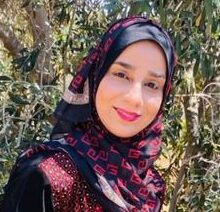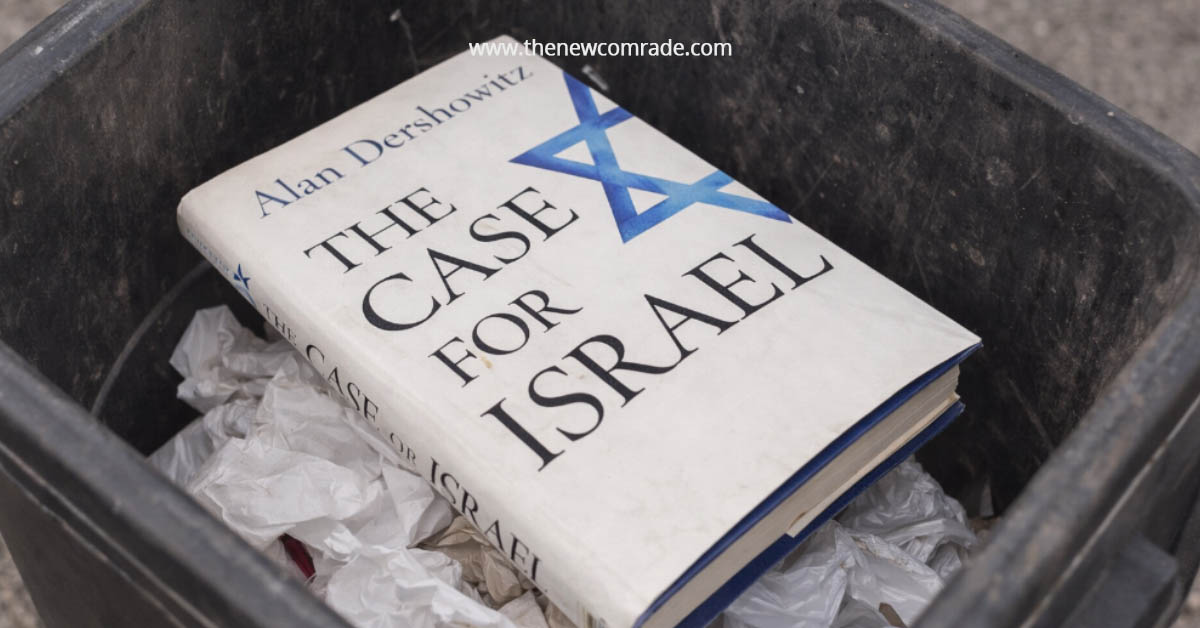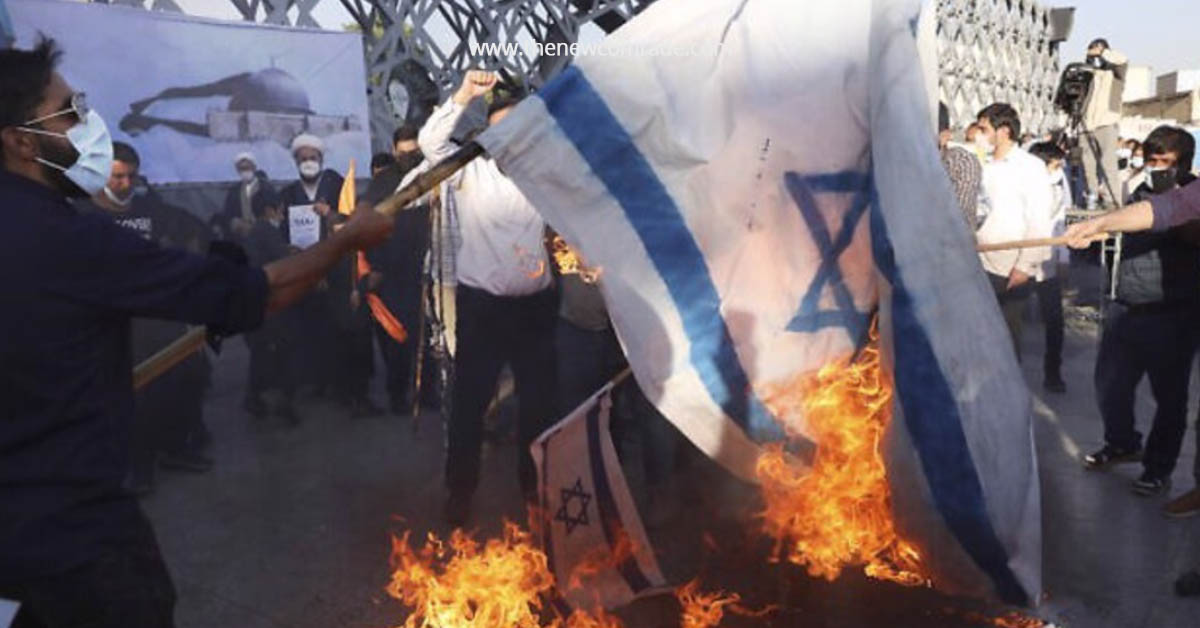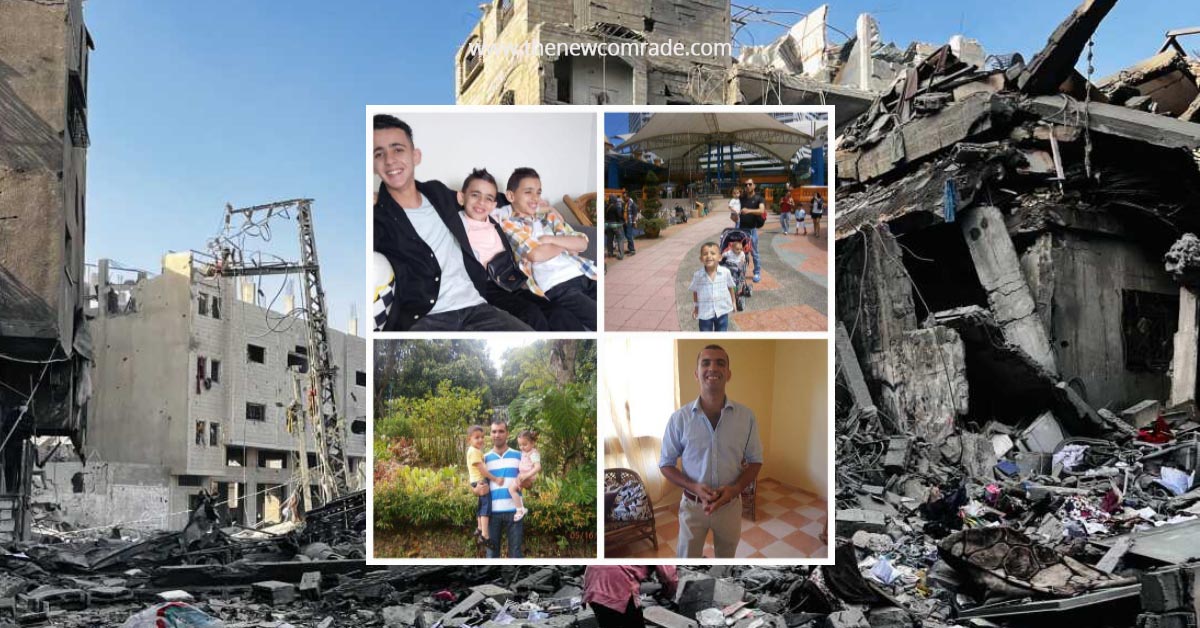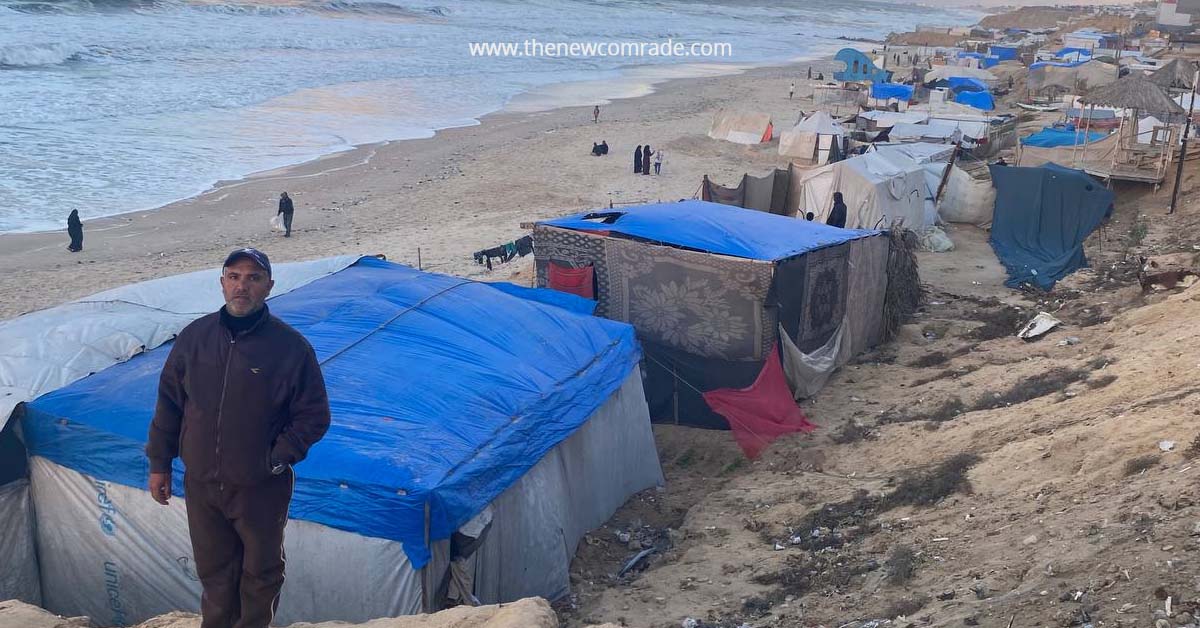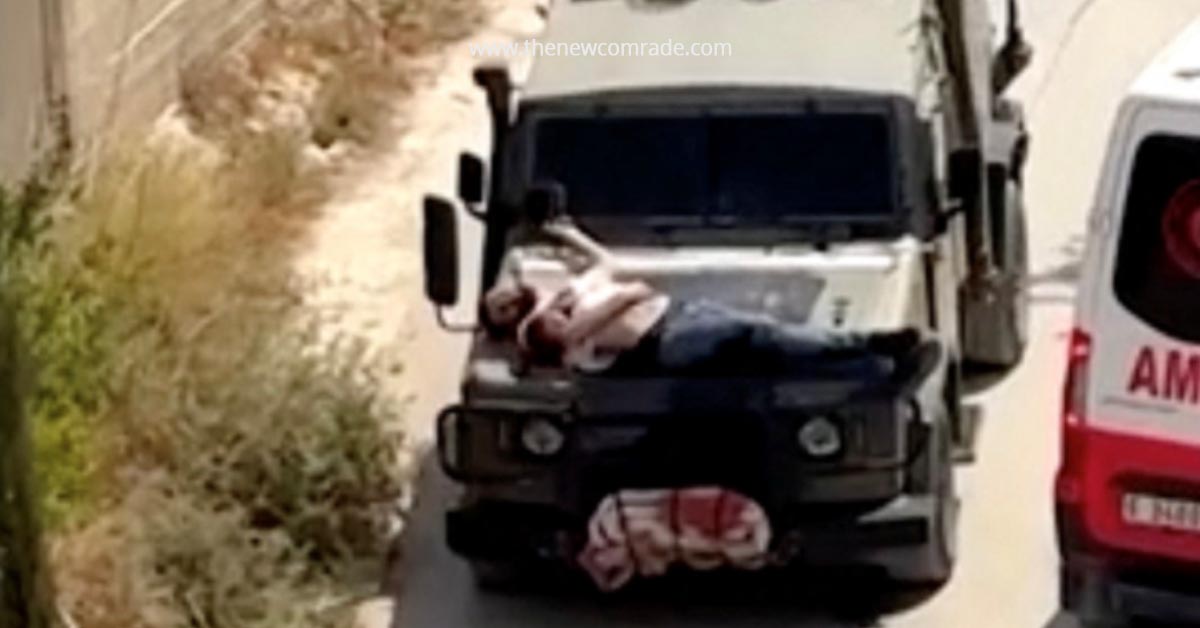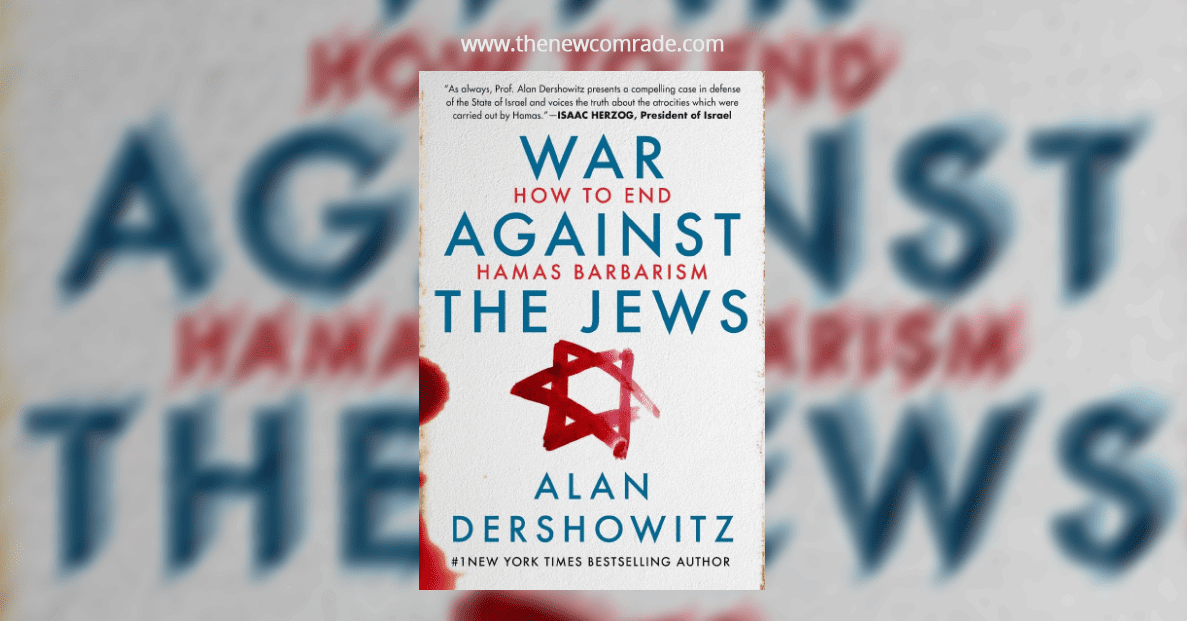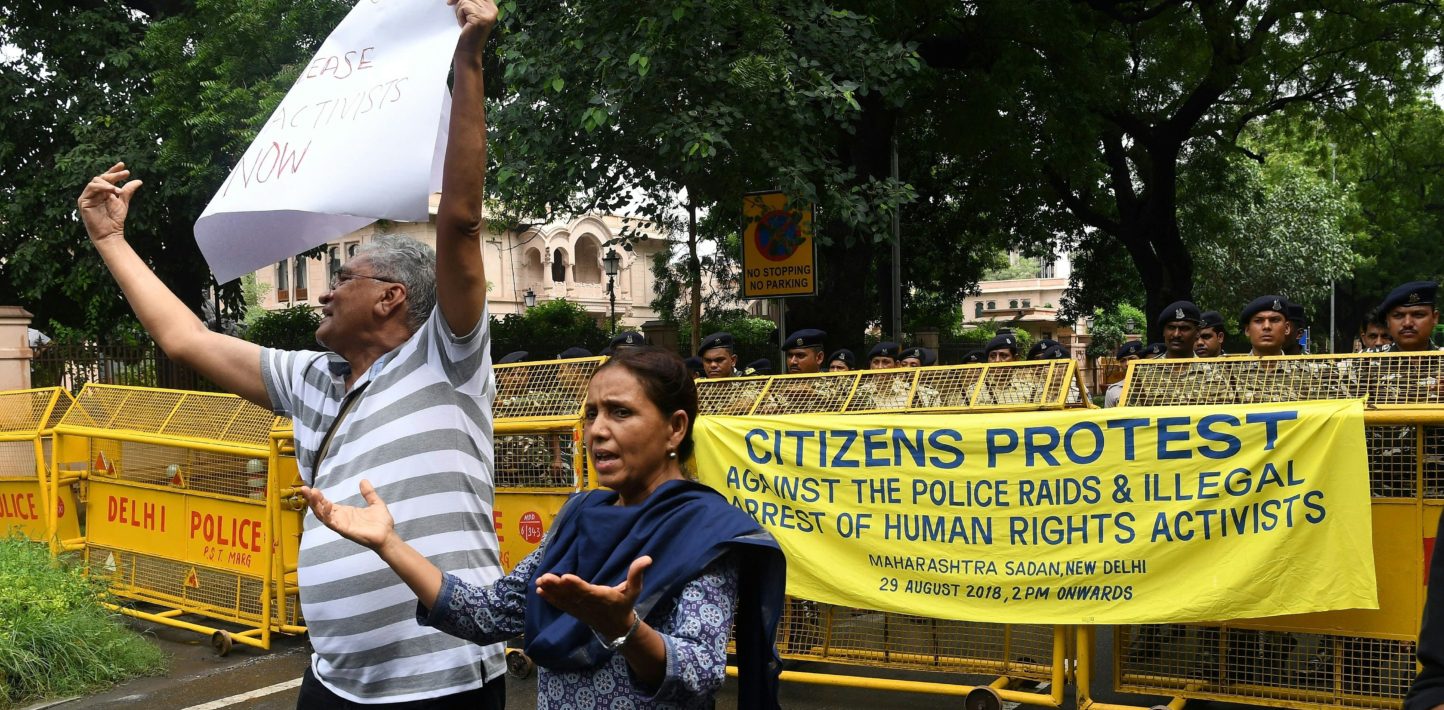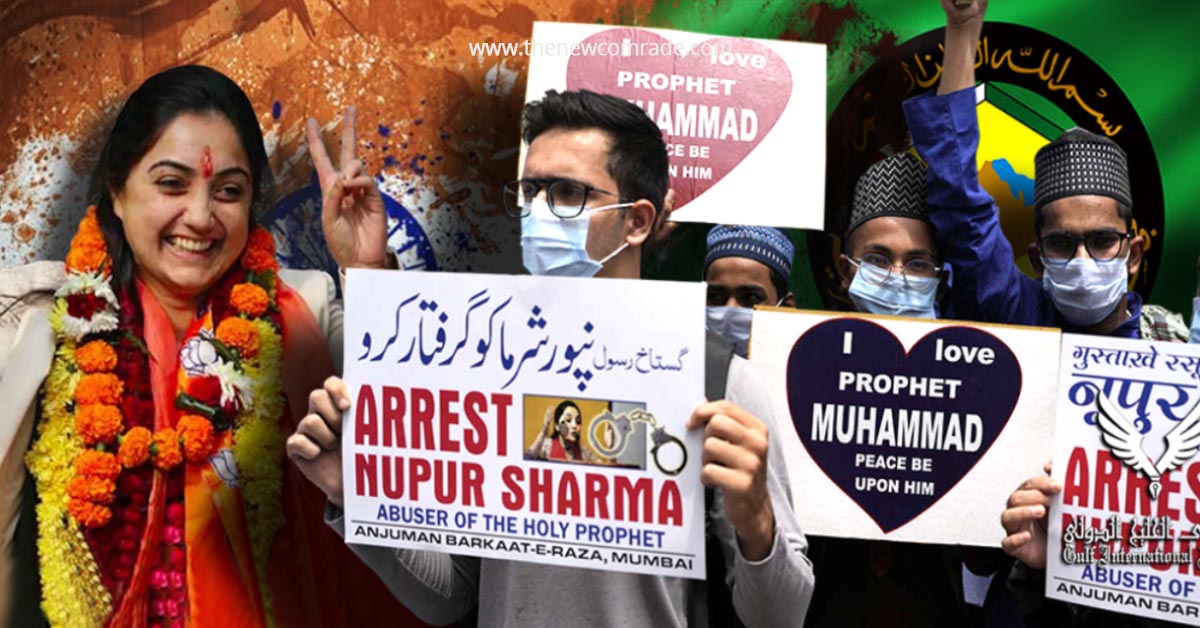The aggression following “Aqsa Storm” has been a horrific chapter in the history of Gaza. Gaza had been burdened by decades of Zionist offensives and siege prior to this war. While living in Gaza in this devastating period, the pain that I experience is not just something around the huge magnitude of destruction that I have witnessed, rather it is also about the loss, uncertainty and relentless toll on own life and those on people around me. This war has torn apart not only our homes but also our sense of security; its effects are of a scale that would linger amongst the people of Gaza for generations – by the least estimations.
I used to be, since past many years, covering stories of people for different media outlets and shedding light to their sufferings. It was quite unpredicted that one day I would turn the subject of some such stories.
On October 7, 2023, I had finished my ritual dawn prayers and had begun reading Qur’an when, suddenly, I heard a barrage of rockets. Quite puzzled and fearful, I woke my husband. We turned on the news to hear a speech from ‘Abu Obeida’, spokesperson of Hamas, announcing captivating of about 250 settlers and Zionist soldiers with the goal of freeing Palestinian prisoners in exchange. At that moment, my fear gave way to joy and pride. I began visualising scenes of liberation of Palestinian lands and praying at Aqsa Mosque- our long-cherished dream.
14-long months of total siege, never ending Air strikes
“No food, no gas, no power”
Zionists had started parroting above lines since about a year ago, on every available media outlet and communication channel. That had been widely publicised. It implied a great deal of meanings and significance (especially true, for somebody who had been on the receiving end of the Zionist siege, air-strikes and bombardment for 12-long-months).
The attackers very openly, publicly, unashamedly declared that they were going to decimate an entire populace & race, and that nobody on the face of earth could do anything about it (owing to whole-hearted support from those who have a big façade, called ‘Statue-of-Liberty’, at their eastern shoreline – a blank cheque that they intend to fully leverage on, utilise and with it realise vile intentions of devouring a complete race, an entire population).
These Monsters-of-Satan did not leave even the dead in peace – they ripped out remains of dead, humans from their resting places and destroyed cemeteries.
Without the above mentioned benefactors, Zionists are simply nothing – zilch. In the aftermath of World war I, the victorious powers had got together to implement a project in West Asia, including Arabian peninsula – land of Holy Prophet SAAWS. One key part of that project involved annihilating Palestinians. Zionists are simply executing a part of this vile covenant, most openly, without much entities to raise a finger at them.
“No power, no food, no gas”
In other words, Zionists are carrying out American instructions of absolute annihilation (irrespective of timeline, just-do-it, kind of instructions) – bomb the hell out of men, women, children, the unborn and even the dead, as was done openly in Gaza.
Suffering of Displacement
Deafening sounds of air-strikes and consequent violent tremors characterised the beginning of a long spell of suffering. Initially, people were confused. No one could predict where the next bomb would fall. Fear, thereafter, was palpable, as the constant thud of explosions became a daily rhythm. Those moments of terrifying experience when electricity went out, leaving us in total darkness, accompanied by sounds of chaos around us, remain fresh in my memory. No place seemed sufficiently good to hide from air-strikes, and safety of our homes, too, felt fragile.
On Friday, October 13, 2023, Zionist forces gave an ultimatum to the residents of northern Gaza Strip to flee south, to start a ground offensive in the north. Simultaneously, Zionist air-strikes intensified, leading to massacres and fires; public security became extremely precarious. My husband and myself decided to take our toddler to a seemingly safe area. The toll of this war had not just been in terms of buildings and infrastructure. It had been about human lives, first and foremost. In midst of the bombing, we were forced to flee, not knowing where to go or what would happen next. Streets were crowded with people seeking refuge, carrying whatever belongings they could salvage. We found temporary shelter in a friend’s house in Khan Younis, though that place too could not be considered safe. Sounds of bombing never ceased. Every time we thought it was over, another strike would cause tremors again.
It was the first time that I had left Gaza City. I felt a deep sense of alienation, pain, and longing for my city, which I loved, despite various hardships and wars experienced there.
Fear for my family’s safety used to consume me up. I could not stop thinking about my little child. How could I protect her from such vast and uncontrollable offensive and its repercussions? Uncertainties of whether we could make it through each night, if we could see another day, was too overwhelming to explain. There had been numerous moments when I felt completely helpless, watching sufferings around without being able to do anything about it.
As days dragged on, the situation grew more dire. Hospitals, whose resources were extremely strained by the ever-increasing war casualties, eventually became low on supplies. People were dying not only from the bombs but from conditions that could have been prevented — lack of medical care, untreated wounds, infections, etc. Hopelessness in the air was suffocating. Every call from a loved one carried news of greater pain, greater loss. The emotional toll was just as unbearable as the physical destruction.
Two months into the ground offensive in Gaza City, Zionist forces again gave us ultimatum in Khan Younis for a ground invasion. We fled again – this time to Rafah, the southernmost city in Gaza Strip. Later, I was informed that my sister, who had stayed behind in the north with her husband and children, had been injured. At that time, Zionist forces were conducting an offensive on Shifa Hospital. My sister needed surgery on her foot but could not reach the hospital, leading to an infection. Till date she suffers from resultant complications.
Scarcity of food and clean water made survival even harder. We were forced to ration whatever little we had. In the chaos, basic necessities like bread and water became luxuries. It was heartbreaking to see children go to bed hungry and families struggle to make it through each day. Consistent fear of death, combined with physical deprivation, created a kind of emotional numbness. It felt as if we were just waiting for the next disaster- the next tragedy- to strike us.
Hardest part of this saga was the mental toll and anguish it caused. Trauma of witnessing loved ones in pain, neighbours lose everything, and experiencing this never-ending cycle of destruction began to erode our sense of normalcy. It became impossible to imagine a future beyond the war. Every day felt like a struggle just to survive, and the constant anxiety about what would happen next left no scope for peace of mind.
Despite all these, there was something remarkable that emerged from the wreckage, viz. resilience of the people. Even in face of such immense hardships, people found ways to help one another. Neighbours shared what little they had. Volunteers risked their lives to deliver food and medicine to those in need. We looked out for each other in ways that felt like a lifeline in midst of despair.
This resilience was born of necessity, not choice. We had no other option but to keep fighting to survive, when every part of our lives lied shattered.
In May 2024, we woke up to a third instruction, at 7 AM, to evacuate Rafah. We then moved to Deir al-Balah in central Gaza Strip, which was overcrowded to the point that we could not find any shelter, so we had to buy a tent and live in it until we could find a proper place.

Life in the tent was an indescribable torment of its own. We lived in the tent for three and half months. During this period, my daughter contracted various illnesses, including a skin infection that spread throughout her body. My appearance changed; I could barely stand to look at myself in the mirror. On top of that, we suffered from issues of sleeping and eating. My daughter and myself contracted hepatitis due to food contamination in the tent. After a while, my husband found a place, relatively more suitable for us to live. I still feel upset about the situation of people living in tents since the beginning of the war due to their poor financial conditions and their inability to pay rent.
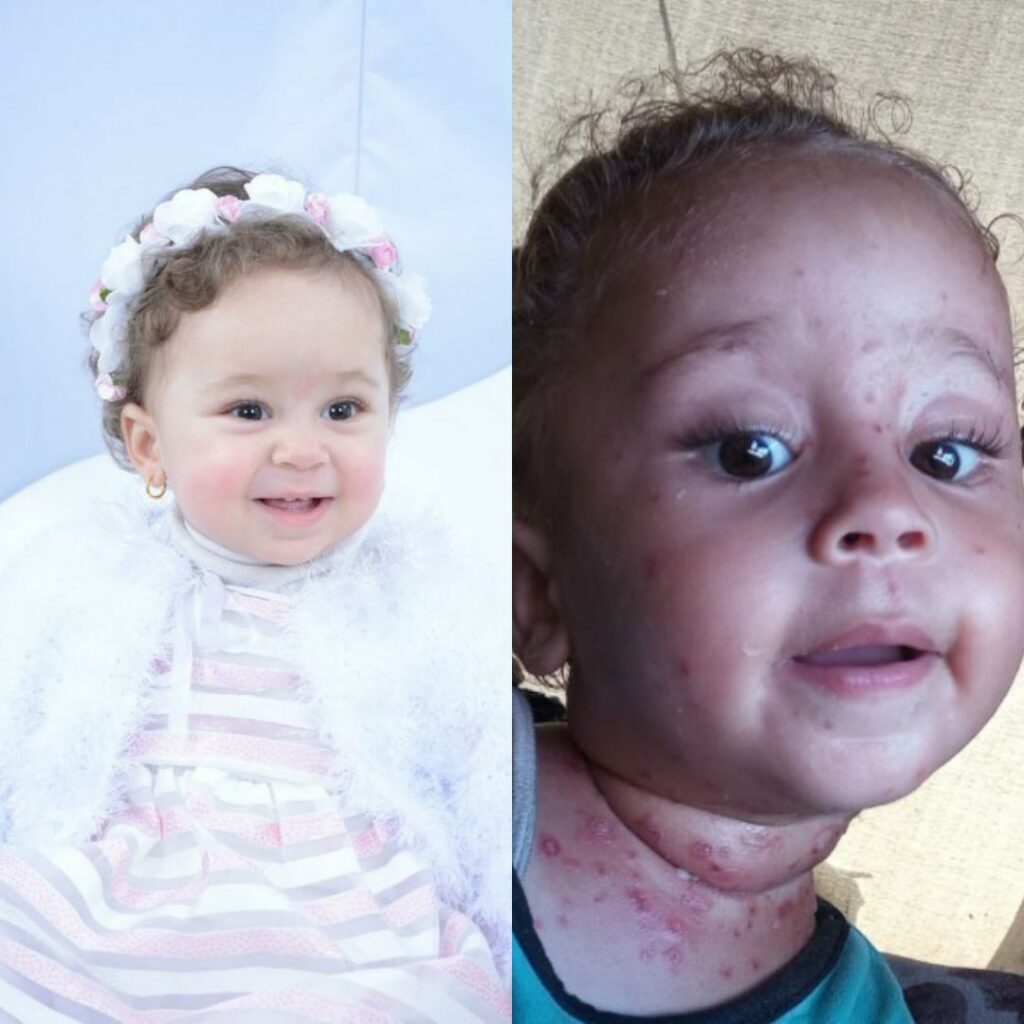
As I reflect on the devastation of the war that followed Aqsa Storm, its scars on my heart and mind might not get healed. The loss of family, friends, and things we knew is something that could not be easily forgotten. The psychological wounds are deep, and the road to recovery seems longer.
As I hold on to what remains — my loved ones, my community, our hopes of overcoming — I find strength in the belief that in the darkest moments, humanity’s will to survive and support one another could prevail. The war has failed to take away this spirit.
Loss of My Home
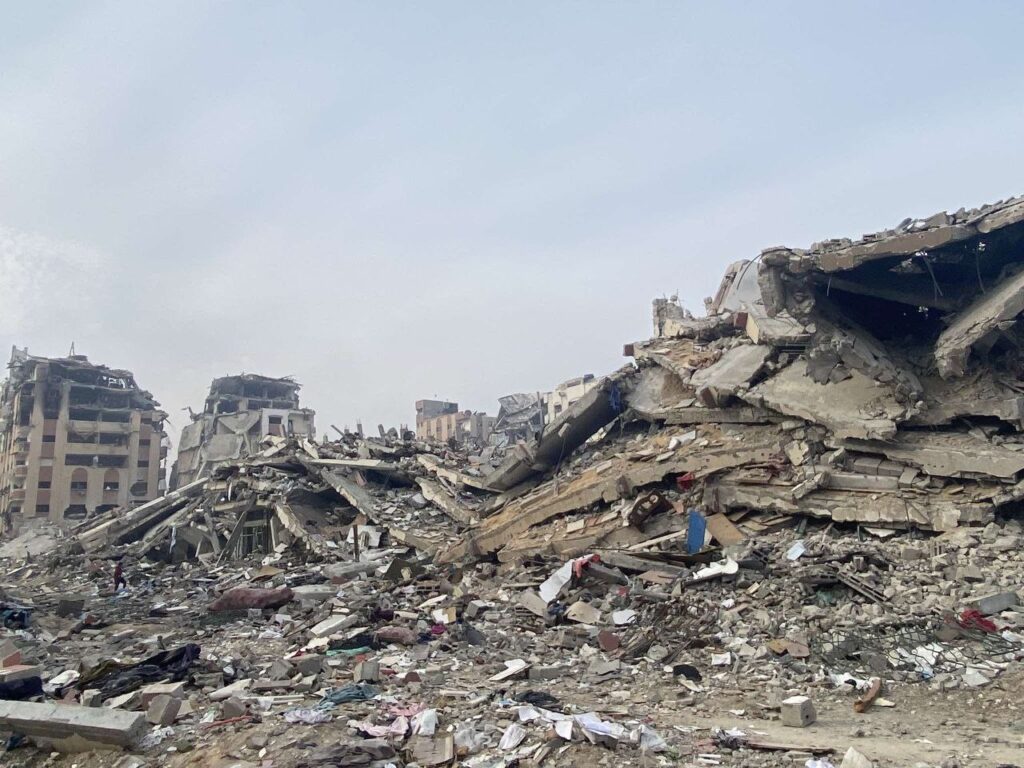
With the truce declaration by Zionist forces, I was filled with thoughts of return to Gaza city and to my home, which I consider not just a structure, but an abode of my dreams, tranquillity, and comfort. I would call my sister every day to tell her that we would soon be reunited. I would also fancy about my daughter’s third birthday, due in the last week of March, in this home. Little did I know that I was poised to receive the biggest shock so far. It was the first day of the ceasefire, when one of our neighbours in Gaza went to check on our house in the Tel al-Hawa neighbourhood and found nothing but rubble. He sent us a picture of our destroyed home. I could not help but cry bitterly for the memories I had lost – brutally stolen- by the occupation, a characteristic of its aggression and its policy murder, violence, and destruction.
Loss of my home in Gaza was akin to the loss of a part of my own identity – building blocks consisting of years of love and struggles. More than a mere concrete structure, it meant safety, comfort and warmth for me. It was an element of my bond with family and my feeling of security. To lose it was to lose my sense of belonging, and my roots in this world.
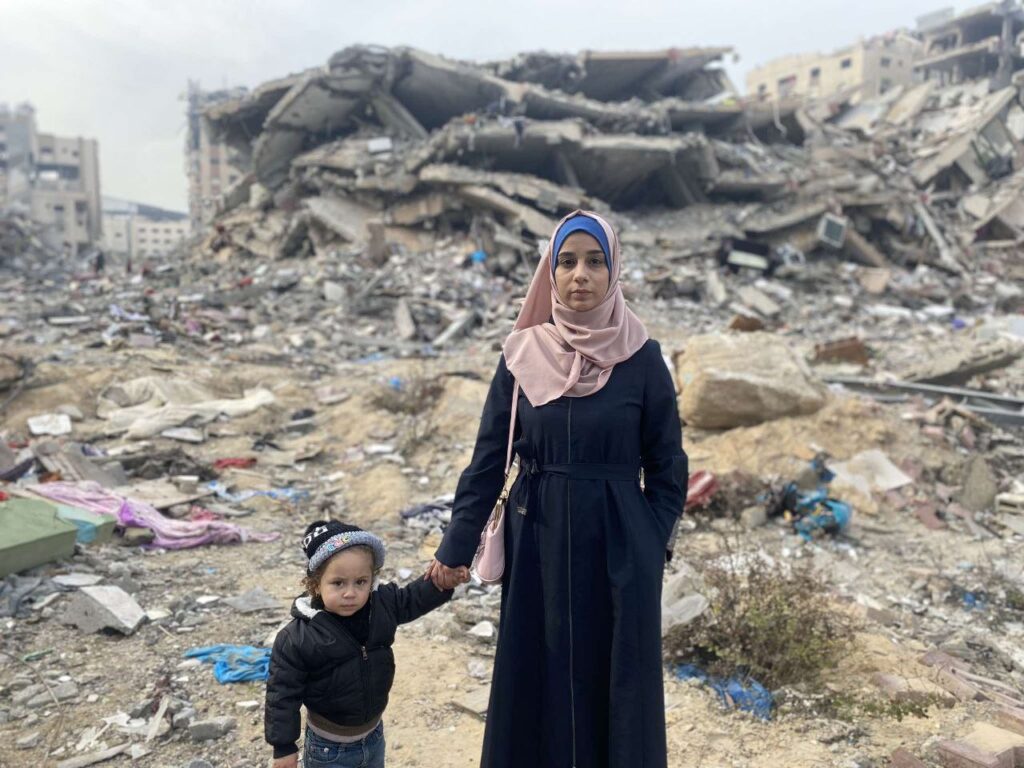
There is a deep sense of displacement that comes with this loss. I no longer have the familiar corners that once offered me comfort, rooms where my daughter played, spaces where we gathered for meals and shared stories. Every part of that structure housed a memory, and it was gone, reduced to rubble. The emotional toll of losing these precious moments is overwhelming. I feel cast away from a life I knew, to a world of uncertainty where nothing feels stable or predictable any more.
The feeling of helplessness is intense – beyond physical loss of shelter ; it is also about accompanying fear and trauma. Without a home, there seems no retreat, when world weighs heavy. Constant anxiety of where to go next, struggle to find safety in a place that no longer feels safe, eats my mind. The stress of trying rebuild when everything around me is in ruins furthers this feeling of being trapped.
A discrete grief — one that does not necessarily manifest in visible tears – lingers in heart. A grief for all that was lost, for a future that was abruptly shattered, and for lives that have been changed forever. It is a loss that goes beyond material things; it is a loss of a way of life, of stability, and of hope.
In this overwhelming sorrow, there is also a glimmer of resilience. As devastating as the loss is, the will to move forward persists. While I may have lost my home, I have not lost my family, my community, or the strength to rebuild — piece by piece, day by day. In this journey, I learn that home is more than just a physical place, rather it is also the people, the love, and the hope that we carry within ourselves, no matter where we are.
Scenes of Returning to Northern Gaza
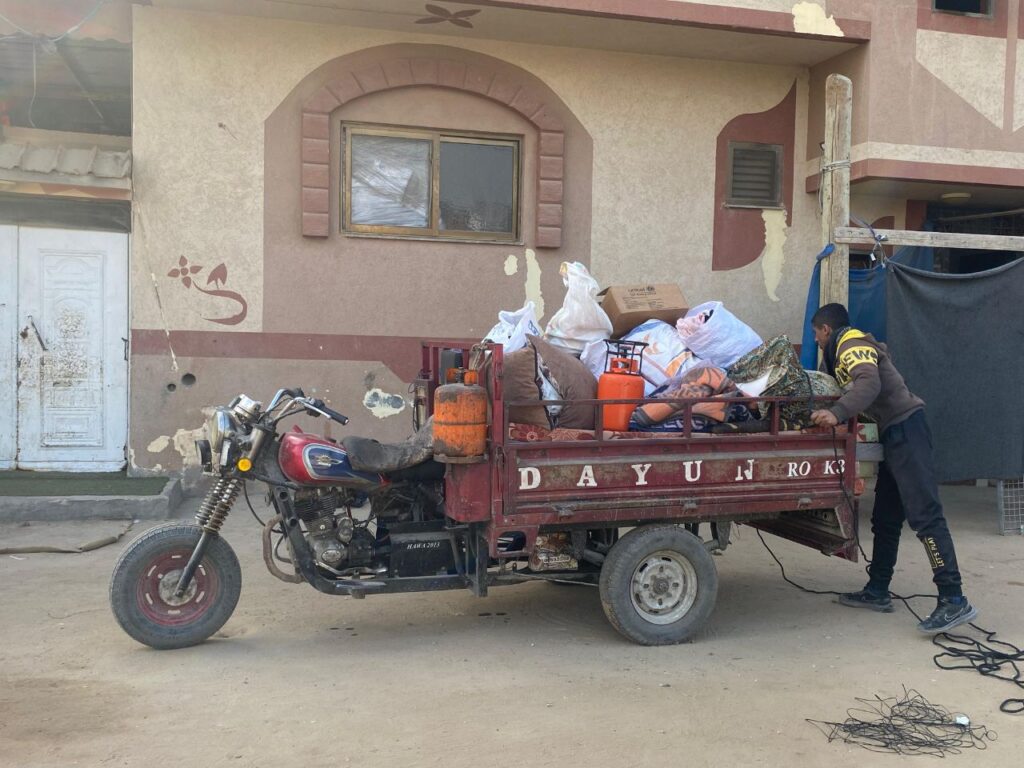
What had once been the longing anticipation of returning to Gaza City, turned to feelings of grief and pain as I realised that I no longer had a home to return to. Despite this, I insisted on going back to witness joy of displaced people returning to their homes after 14 months of displacement.
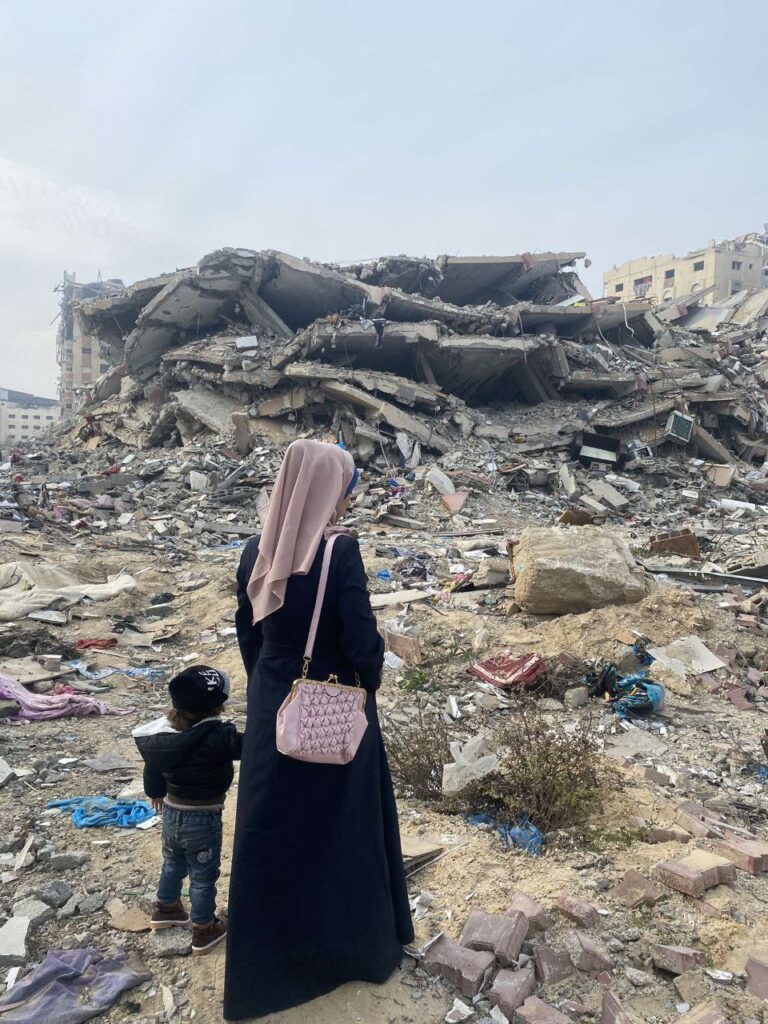
As people kept returning in Gaza City, they began checking on their homes. I could see bitterness in their faces as they discovered their homes had turned to rubble. Lost, confused, and painful — this feeling was no longer individual or personal. Everyone felt it, and it burned within them. Gazans generally feel lost, with bleak future, no power to raise them, and no hope.
People, I talk to, express concern, confusion, and fear about the future. They have deep feelings of despair and depression. They speak about losses and their shock at seeing homes destroyed. Occasionally they regret seeing them. The pain after losing homes, and loved ones is unimaginable. They become beggars overnight, knocking on doors to save themselves, trying to stay alive, after having existed in dignity.
The most common question among Gazans at that time was: “Do you have a house?” Over 70% of the responses were: “No. It is destroyed.” The rest said that a shell hit their roof, or that they found their house burned. Imagine that asking about the house in this chaos became as simple as asking about a lost pen.
Gaza has been deemed a broken, destroyed, sorrowful, and bleeding place. Now, it is unable to rejoice. The sorrow is greater than the area of this land; it is greater than the ability to fake. Its wounds are deep, and its land is filled with mass graves, decaying bodies, skulls, and destruction.
Its children are haunted by painful and dark memories. Currently, nothing matters to them as much as the safety that they have lost.
The conclusion I drew from my conversations with the suffering Gazans is that the greatest victory they could achieve currently is to remain steadfast on their land.
Photos credit to the author
